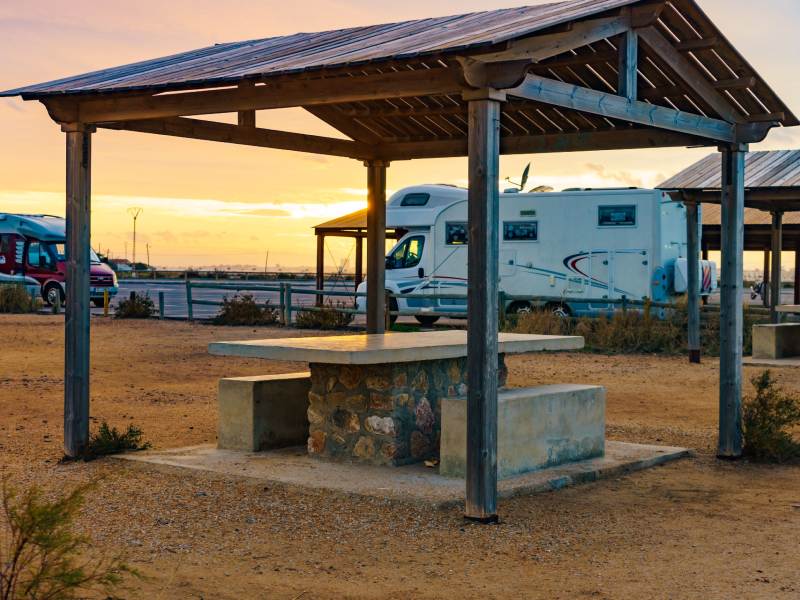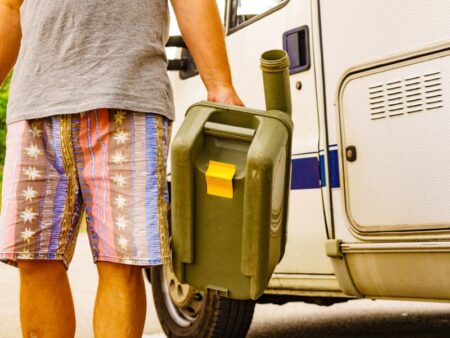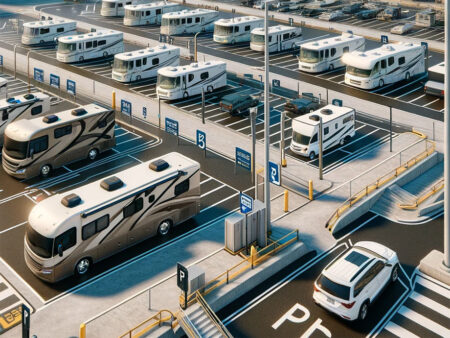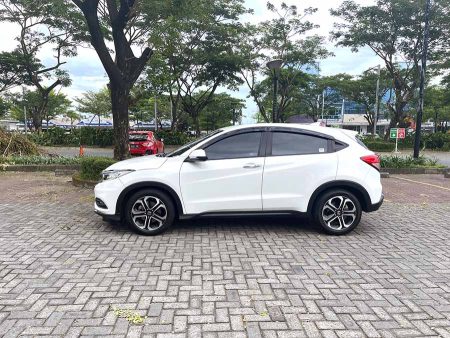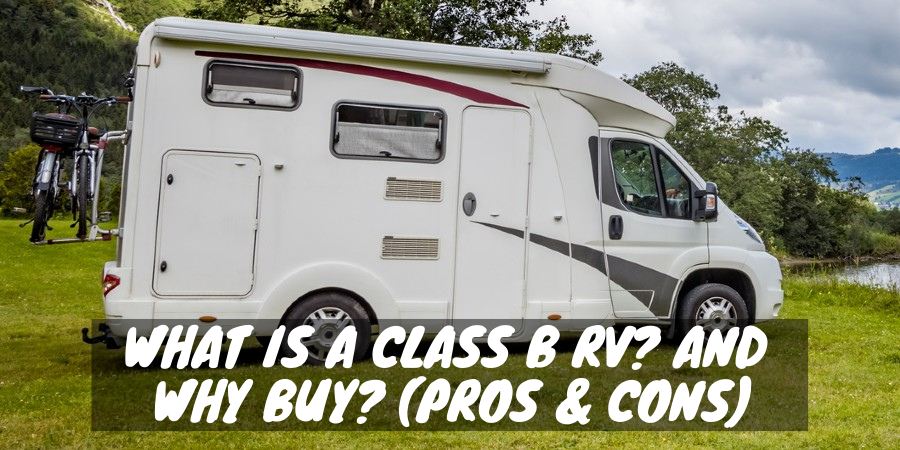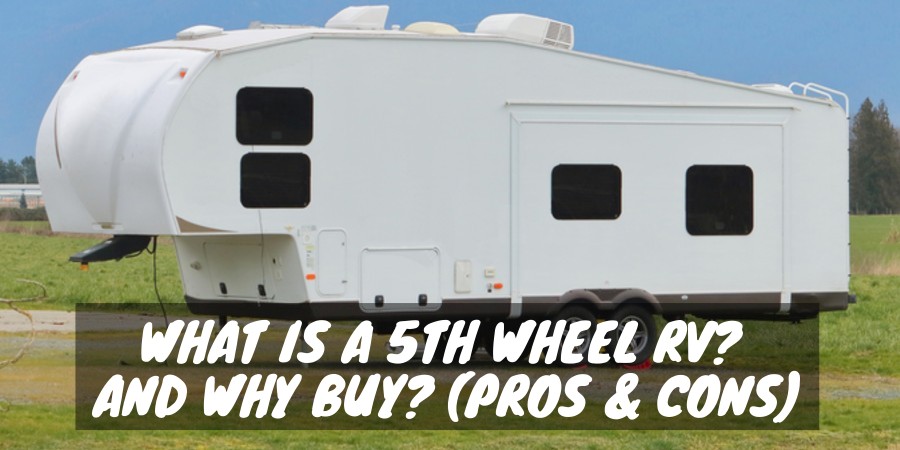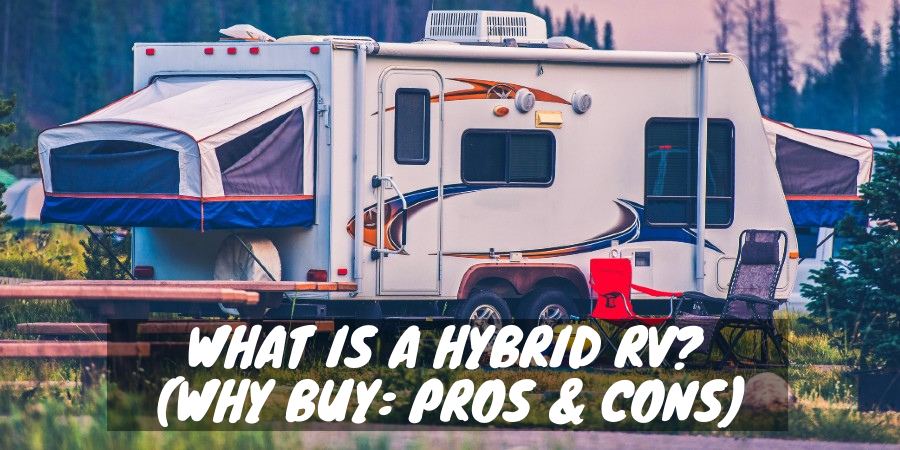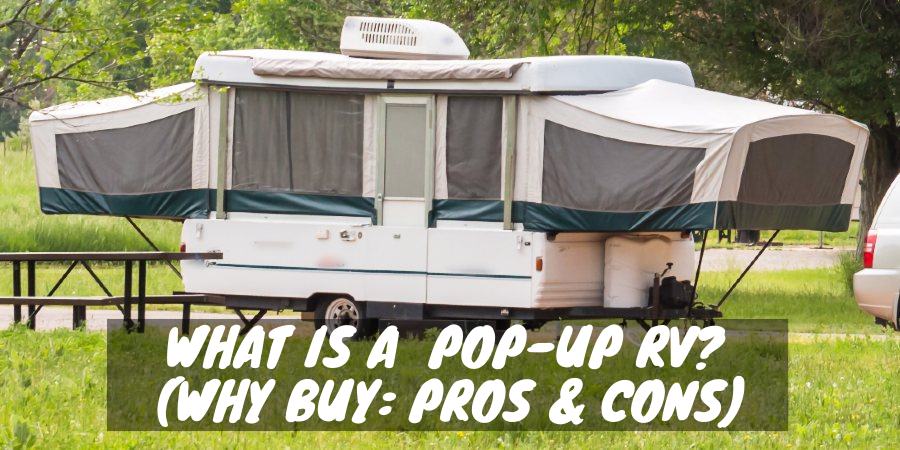RV travel can get hectic if you can’t find an open campground when you want to rest. Sometimes, you only need to sleep a few hours and don’t want to spend money on a campsite or have to drive miles off the highway to reach one.
Many people think the easy solution is to pull into any rest area along highways across the US and crash for the night. Rest stops are convenient, but can RVs legally park overnight at rest areas?
Learning the do’s and don’ts of rest area etiquette and understanding the laws when you RV to avoid problems is essential. Thankfully, this guide will explain what you must know to travel safely while getting the rest you need.
Rest Area Overnight Parking Laws for RVs
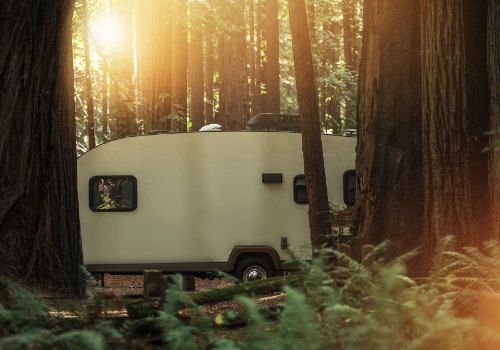
Rest areas are under the control of individual states, so as you travel in your RV, you’ll encounter different laws concerning overnight parking. However, most states forbid “camping” at rest stops whether you’re in an automobile or recreational vehicle.
You often encounter signs stating no overnight parking is allowed at rest areas, but what does this mean? Since rest stops are open 24/7, it’s common for people to stop and take a break during overnight hours.
Here are the states with laws that forbid overnight parking at rest areas:
- Maryland
- Colorado
- South Carolina
- North Carolina
- Nebraska
- Hawaii
- Tennessee
- Virginia
Other states, like Indiana, Georgia, Massachusetts, and New Jersey, restrict overnight parking at some specific locations for RVs and automobiles, while the rest allow such activity. However, all other states do not have laws on the books that forbid overnight parking in rest areas.
Are There Time Limits on Rest Area Parking?
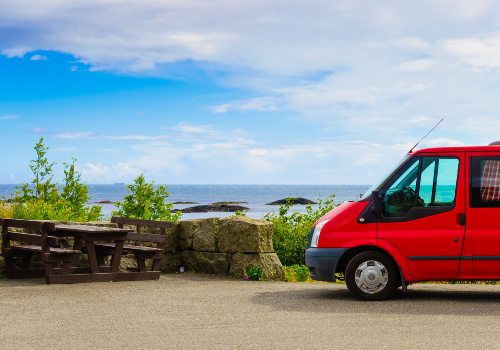
Here are states with an “official” limit on how many hours you can remain at a rest area in a single stretch. However, if you aren’t a nuisance, most states won’t chase you out if you exceed the limit.
| State | Rest Area Parking Limit |
|---|---|
| California | 8 hours |
| Delaware | 6 hours only at Smyrna Rest Area |
| Florida | 10 hours for truckers, 3 hours for RVs/cars |
| Idaho | 10 hours are allowed at Interstate rest areas, with a 16-hour allowance on other highways |
| Illinois | 3 hours |
| Iowa | 24 hours |
| Kansas | 24 hours |
| Kentucky | 4 hours |
| Maryland | 3 hours |
| Massachusetts | Some locations have a 2-hour limit |
| Minnesota | 10 hours for truckers, 4 hours for RVs/cars |
| Mississippi | 8 hours |
| Nebraska | 10 hours |
| Nevada | 18 hours |
| New Mexico | 24 hours |
| New York | 10 hours for truckers, 3 hours for RVs/cars |
| Oregon | 12 hours |
| Pennsylvania | 2 hours |
| South Dakota | 10 hours for truckers, 3 hours for RVs/cars |
| Tennessee | 2 hours |
| Texas | 24 hours |
| Washington | 8 hours |
| Wisconsin | 24 hours |
Feel free to continue to use rest stops in your RV. All rest areas welcome RVers and other travelers as long as you park in the appropriate section of the lot and abide by local rules. Many rest areas even have free dump stations for RVs and truckers.
Another plus is that many states are adding facilities for RVs when they refurbish older rest areas. For example, you can find first-come, first-served RV parking sites with electric hookups, potable water, and dump stations along the Ohio Turnpike.
Why Do Rest Areas Restrict Overnight or Long-Term Parking?
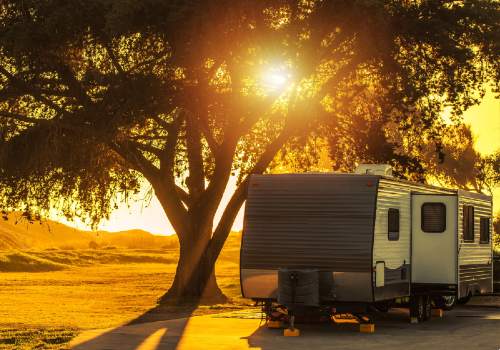
Rest areas and parking lots of major retailers are favorite places for RVers to park and catch a few hours of sleep without having the hassle and expense of pulling into a campground. The locations are typically right off the highway and offer spacious parking so you can easily maneuver your camper in and out.
Unfortunately, people down on their luck take advantage of such a convenient and free place to park and make it their “home.” People homesteading at Walmart is why many stores now forbid RV parking overnight, and the same holds for rest areas.
State officials want people to feel safe when stopping at rest areas, and encountering people who have set up camp can be very unsettling for visitors who wish to use the facilities as intended.
Want to Connect With a Community of Over 1,078 RV Enthusiasts?
Keeping control of parking violations is the only way to ensure rest areas aren’t full of boondocking RVers who have nowhere else to go or can’t afford a traditional campground in a popular tourist destination.
RV Rest Area Etiquette
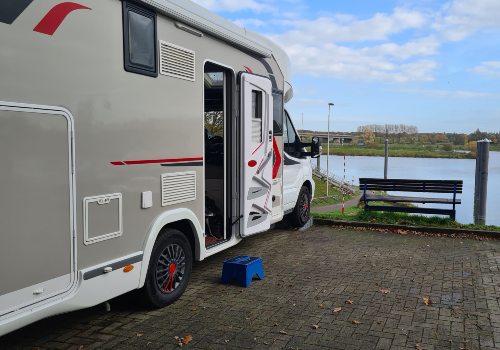
Research from contacting state departments of transportation indicates that the unspoken rule of parking overnight at rest areas is always to stop and sleep if you’re tired. An impaired driver is dangerous to yourself and others, and no law enforcement officer will punish you for sleeping overnight if you need to.
The most important rule for RVers who need to stop to sleep is never to appear as if you’re camping in any way, even if you park in the most remote section of the lot.
Here are some don’ts when stopping at a rest area day or night:
- Do not open your slide-outs
- Do not unhitch your travel trailer from your truck
- Do not put out your awning
- Do not sit outside in camp chairs
- Do not grill or cook directly outside the RV
- Do not tie up your pets outside
- Do not run your generator
- Do not empty waste tanks onto the ground
Here are the things you want to do to avoid unwanted attention:
- Pull into the lot section indicated for RVs or oversized-vehicles
- Keep all RV amenities in “travel” position
- If you want to relax outdoors, bring your chairs to the grassy area set aside for picnics and exercise
- Only use designated grills if available
- Keep pets on a leash and under your supervision at all times
- Clean up after yourself and your pets
- Cover your windows for privacy and lock your doors at all times, even when you are inside
- Do not blare the radio or TV and disturb others who may also be napping in their RV or vehicle nearby
Final Thoughts
The takeaway from this guide is that you can park overnight at most rest areas in your RV without a problem. Getting the sleep you require to drive safely is most important to you and law enforcement, so don’t be afraid to stop when necessary.
When RVers do their part to avoid being a rest area nuisance, travel days are much smoother for everyone!
We Parked Overnight in a Rest Area | Was It Legal?
"Man cannot discover new oceans unless he has the courage to lose sight of the shore."
-- Andre Gide

